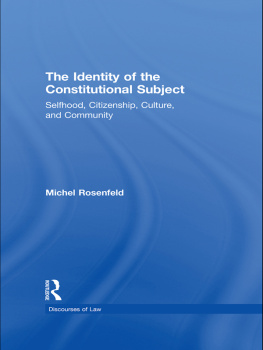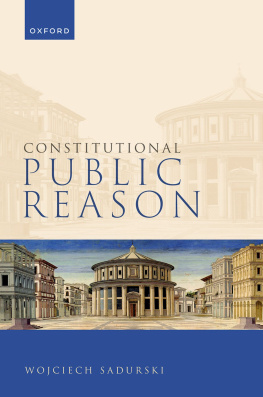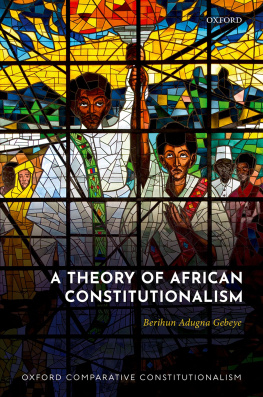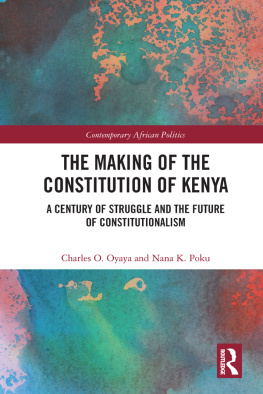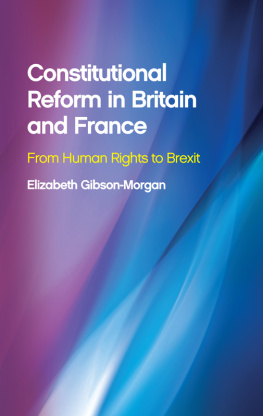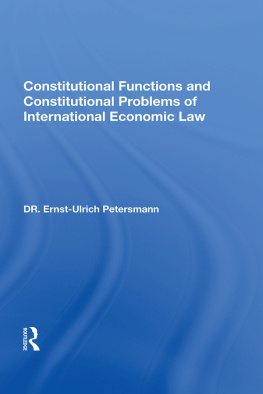Michel Rosenfeld - The Identity of the Constitutional Subject: Selfhood, Citizenship, Culture, and Community
Here you can read online Michel Rosenfeld - The Identity of the Constitutional Subject: Selfhood, Citizenship, Culture, and Community full text of the book (entire story) in english for free. Download pdf and epub, get meaning, cover and reviews about this ebook. year: 2009, publisher: Routledge, genre: Politics. Description of the work, (preface) as well as reviews are available. Best literature library LitArk.com created for fans of good reading and offers a wide selection of genres:
Romance novel
Science fiction
Adventure
Detective
Science
History
Home and family
Prose
Art
Politics
Computer
Non-fiction
Religion
Business
Children
Humor
Choose a favorite category and find really read worthwhile books. Enjoy immersion in the world of imagination, feel the emotions of the characters or learn something new for yourself, make an fascinating discovery.
- Book:The Identity of the Constitutional Subject: Selfhood, Citizenship, Culture, and Community
- Author:
- Publisher:Routledge
- Genre:
- Year:2009
- Rating:3 / 5
- Favourites:Add to favourites
- Your mark:
The Identity of the Constitutional Subject: Selfhood, Citizenship, Culture, and Community: summary, description and annotation
We offer to read an annotation, description, summary or preface (depends on what the author of the book "The Identity of the Constitutional Subject: Selfhood, Citizenship, Culture, and Community" wrote himself). If you haven't found the necessary information about the book — write in the comments, we will try to find it.
The last fifty years has seen a worldwide trend toward constitutional democracy. But can constitutionalism become truly global?
Relying on historical examples of successfully implanted constitutional regimes, ranging from the older experiences in the United States and France to the relatively recent ones in Germany, Spain and South Africa, Michel Rosenfeld sheds light on the range of conditions necessary for the emergence, continuity and adaptability of a viable constitutional identity - citizenship, nationalism, multiculturalism, and human rights being important elements.
The Identity of the Constitutional Subject is the first systematic analysis of the concept, drawing on philosophy, psychoanalysis, political theory and law from a comparative perspective to explore the relationship between the ideal of constitutionalism and the need to construct a common constitutional identity that is distinct from national, cultural, ethnic or religious identity.
The Identity of the Constitutional Subject will be of interest to students and scholars in law, legal and political philosophy, political science, multicultural studies, international relations and US politics.
Michel Rosenfeld: author's other books
Who wrote The Identity of the Constitutional Subject: Selfhood, Citizenship, Culture, and Community? Find out the surname, the name of the author of the book and a list of all author's works by series.

